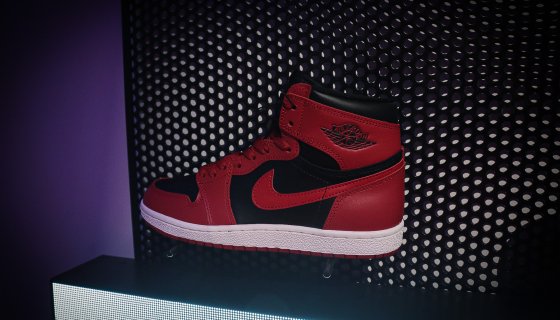
Source: Bernard Smalls / @PhotosByBeanz83
We all know the sneaker game is absolutely rigged, but a new story from the Los Angeles Times put a big spotlight on just how much of a jig it is.
Every weekend on Twitter, you can expect to see people complaining about a sneaker drop, whether it be a pair of Jordans or Dunks on the SNKRS app or YEEZY’s via YEEZY Supply or adidas CONFIRMED app. Many sneaker aficionados have been screaming for years that there is something fishy is going on when purchasing a pair of sneakers on these apps.
Recent fallout following a former Nike executive and her reseller son, Joe Herbert, has seemingly confirmed what sneakerheads have been saying all along after being exposed following a Bloomberg piece that spoke about the booming sneaker market and how kicks have become “bonafide assets.”
Speaking with Bloomberg, Herbert boneheadedly put himself on blast admitting to his use of the machine learning tools called “bots” to help them scoop up ridiculous numbers of sneakers to sit on and resell via his own website or online marketplaces like StockX, GOAT, Stadium Goods, Flight Club and other sites and making $20,000 or more flipping kicks.
Speaking with the LA Times, Chad Jones, who, alongside his wife, Adena, founded their own marketplace called Another Lane, said, “There’s a lot of fraud. There’s a lack of transparency,” when it comes to sneaker copping game. To battle the bots and greedy folks like Herbert, the couple screens sellers by vehemently checking their legitimacy and the authenticity of the shoes they are trying to move.
Adena Jones detailed the vetting process adding, “We vet our members. So you’re not just out there being anonymous. Your name is connected to the product,” said Adena Jones. “And if you’re selling a fugazi product [fake or damaged], A, you probably wouldn’t make it onto our platform, or B, you would be kicked off our platform.”
The couple raised $165,000 to get the marketplace off the ground last April in hopes of restoring the “old-school” sneaker culture where bots were the least of sneaker buyers’ worries, and actual people sell shoes to other people, not to bots.
That’s one minor solution but doesn’t solve the problem entirely. Chad Jones feels if you really want to punish sneaker hoarders who parade as resellers, the key is to hit them where it hurts, in the wallet. “You know how you combat somebody who you think is getting too many pairs of sneakers and just in it to resell them for as much as possible? You don’t buy from him,” Jones told the publication. “It’s that simple. And then when he’s stuck with $100,000 worth of product and can’t pay that credit card bill back from mommy, then he’s out.”
We definitely agree with that.
But, it seems as long as the demand remains high for these sneakers, people will continue to flock to these “resellers” to get a pair of kicks.
Following the “resignation” of Ann Hebert, Nike Chief Executive John Donahoe assured employees whose confidence was rattled in the wake of the scandal that the company was taking the situation very seriously. Herbert has since been replaced.
“There’s no value more core to who we are than the trust our consumers put into us and our brand and our products,” Donahoe said during a video conference Complex reported. “And the fact of the matter is, this incident has sparked questions in some of our consumers about whether they can trust us, particularly around launch product.”
Donahoe also claimed that Nike has been working on “anti-bot technology” for the past several years as part of a solution while admitting the company needed to “double down” its efforts.
It’s clear that technology isn’t ready yet becuase the bots are still winning the SNKRS game very easily.
—
Photo: Bernard Smalls / @PhotosByBeanz83
